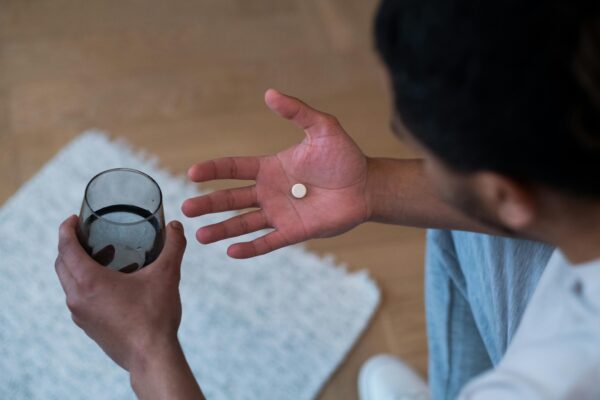Erectile dysfunction (ED) is an issue that can strike at the heart of a man’s confidence. It’s not just about what happens in the bedroom—it can affect relationships, self-esteem, and overall quality of life. If you’ve been prescribed Imipramine, or you’re considering it, you might be wondering how it impacts ED and your sexual health. Let’s dive deep into this topic to help you understand the connection, causes, and possible solutions.
- What Is Imipramine?
- How Imipramine May Contribute to Erectile Dysfunction
- Symptoms of Erectile Dysfunction on Imipramine
- Strategies to Manage Imipramine-Induced ED
- When to Seek Help Immediately
- Can You Prevent ED While Taking Imipramine?
- The Bottom Line
- Sources, Studies, and Links
- FAQs: Imipramine and Erectile Dysfunction
- Question: Can Imipramine cause erectile dysfunction?
- Question: How does Imipramine affect sexual function?
- Question: Are there ways to manage erectile dysfunction caused by Imipramine?
- Question: Can switching from Imipramine to another antidepressant help with ED?
- Question: Is erectile dysfunction caused by Imipramine reversible?
- Question: Should I stop taking Imipramine if I experience erectile dysfunction?
What Is Imipramine?
Imipramine belongs to a class of medications called tricyclic antidepressants (TCAs). It’s primarily prescribed to treat depression, but it’s also used for conditions like anxiety, chronic pain, and even bedwetting in children. This versatile medication works by altering the balance of neurotransmitters—chemicals in the brain that affect mood, pain, and, yes, even sexual function.
While Imipramine has proven benefits, it’s not without its side effects. One that gets a lot of attention? Its potential impact on erectile function.
How Imipramine May Contribute to Erectile Dysfunction
Erectile dysfunction can be influenced by many factors—physical, psychological, and even medication-related. When it comes to Imipramine, here’s what might be going on:
- Neurotransmitter Disruption
Imipramine increases levels of serotonin and norepinephrine in the brain. While this helps lift your mood, it can sometimes interfere with dopamine, a neurotransmitter critical for sexual arousal and erection. Lower dopamine levels? Tough luck in the bedroom. - Blood Flow Changes
For an erection to happen, blood flow to the penis needs to be at its peak. Some studies suggest that TCAs like Imipramine may slightly reduce blood vessel flexibility, potentially making it harder to maintain that crucial blood flow. - Hormonal Effects
While rare, Imipramine might indirectly impact testosterone levels, which are vital for libido and erectile function. Low testosterone levels can make ED worse. - Anticholinergic Effects
Imipramine has anticholinergic properties, meaning it can dry you out—literally. This includes reduced lubrication and even difficulty achieving or maintaining an erection. - Psychological Impact
The medication can also lead to fatigue, sedation, or mood swings, making it harder to get into the right mental space for intimacy.
Symptoms of Erectile Dysfunction on Imipramine
Not all men will experience ED on Imipramine, but if you’re one of the unlucky ones, you might notice:
- Difficulty achieving or maintaining an erection.
- Reduced sexual desire.
- Delayed or inhibited ejaculation.
- A general lack of sexual satisfaction.
The severity can range from mild and occasional to severe and persistent. The good news? There are ways to address it.
Strategies to Manage Imipramine-Induced ED
Here’s where we get to the practical part. If Imipramine is affecting your performance, don’t panic. There are actionable steps you can take:
1. Speak to Your Doctor
Your doctor needs to know what’s going on. Never stop or adjust your medication without consulting them first. They might suggest:
- Switching Medications: Sometimes, switching to a different antidepressant with fewer sexual side effects, like bupropion, can solve the problem.
- Adjusting Dosage: A lower dose of Imipramine might still manage your symptoms without the unwanted side effects.
2. Lifestyle Modifications
Simple changes can have a significant impact on ED:
- Exercise Regularly: Physical activity boosts circulation, testosterone levels, and overall mood.
- Eat a Balanced Diet: Focus on foods rich in antioxidants, omega-3 fatty acids, and zinc. Think leafy greens, nuts, fish, and lean proteins.
- Reduce Stress: High stress levels can make ED worse, so incorporate relaxation techniques like meditation or yoga.
- Limit Alcohol and Quit Smoking: Both can worsen ED over time.
3. Medications for ED
Your doctor might prescribe a phosphodiesterase type 5 inhibitor like sildenafil (Viagra) or tadalafil (Cialis). These medications can help improve blood flow and counteract the effects of Imipramine.
4. Psychological Support
If anxiety about performance is contributing to ED, consider therapy. Cognitive behavioral therapy (CBT) or counseling can help you navigate these challenges.
5. Natural Remedies
While not a cure-all, certain supplements like L-arginine, ginseng, or DHEA may help improve erectile function. Always discuss supplements with your doctor first to avoid interactions with Imipramine.
When to Seek Help Immediately
If you experience sudden or severe ED, painful erections, or other concerning symptoms like chest pain or dizziness during sexual activity, seek medical attention promptly. These could indicate a more serious underlying condition.
Can You Prevent ED While Taking Imipramine?
Prevention is better than cure, right? While there’s no guaranteed way to completely avoid ED on Imipramine, these tips might help:
- Start with the lowest effective dose and gradually adjust as needed.
- Pair your medication with a healthy lifestyle from day one.
- Stay open with your partner about how you’re feeling—it can reduce stress and pressure.
The Bottom Line
Erectile dysfunction doesn’t have to control your life, even if you’re taking Imipramine. With the right strategies, open communication, and support from your doctor, you can manage both your mental health and your sexual well-being. Remember, you’re not alone in this—millions of men face similar challenges, and solutions are out there.
So, keep your head up (and your confidence high). You’ve got this. If Imipramine is messing with your mojo, now you’ve got the tools to fight back.
Sources, Studies, and Links
To provide you with accurate and trustworthy information, we’ve referred to reliable sources and scientific studies. Here are some key references you can explore:
- National Institutes of Health (NIH)
- Overview of tricyclic antidepressants and their side effects, including sexual dysfunction:
https://www.nih.gov
- Overview of tricyclic antidepressants and their side effects, including sexual dysfunction:
- Journal of Clinical Psychiatry
- Article discussing antidepressants and their impact on sexual health:
“Sexual Dysfunction Associated with Antidepressants”
https://www.psychiatrist.com
- Article discussing antidepressants and their impact on sexual health:
- Mayo Clinic
- Detailed information about erectile dysfunction, its causes, and treatments:
https://www.mayoclinic.org
- Detailed information about erectile dysfunction, its causes, and treatments:
- PubMed
- Study: “Effects of Antidepressants on Erectile Function: A Systematic Review and Meta-Analysis”
https://pubmed.ncbi.nlm.nih.gov
- Study: “Effects of Antidepressants on Erectile Function: A Systematic Review and Meta-Analysis”
- Harvard Medical School
- Insights into managing medication-induced erectile dysfunction:
https://www.health.harvard.edu
- Insights into managing medication-induced erectile dysfunction:
- Cleveland Clinic
- Expert guidance on sexual dysfunction and related treatments:
https://my.clevelandclinic.org
- Expert guidance on sexual dysfunction and related treatments:
- American Urological Association (AUA)
- Resources for understanding and addressing erectile dysfunction:
https://www.auanet.org
- Resources for understanding and addressing erectile dysfunction:
- WebMD
- Practical tips for managing side effects of antidepressants:
https://www.webmd.com
- Practical tips for managing side effects of antidepressants:
These links and references will provide further insights into how Imipramine and other medications can influence sexual health. Always consult a healthcare professional for personalized advice tailored to your needs.
FAQs: Imipramine and Erectile Dysfunction
Question: Can Imipramine cause erectile dysfunction?
Yes, Imipramine, like other tricyclic antidepressants, can contribute to erectile dysfunction by affecting neurotransmitters, blood flow, and hormonal balance, which are all crucial for sexual performance.
Question: How does Imipramine affect sexual function?
Imipramine can disrupt dopamine levels, reduce blood vessel flexibility, and cause hormonal changes, leading to issues like reduced libido, difficulty achieving an erection, and delayed ejaculation.
Question: Are there ways to manage erectile dysfunction caused by Imipramine?
Yes, management options include consulting your doctor about adjusting the dosage or switching medications, adopting a healthy lifestyle, using ED medications, and seeking therapy for psychological support.
Question: Can switching from Imipramine to another antidepressant help with ED?
Switching to an antidepressant with fewer sexual side effects, such as bupropion, may help. Always discuss medication changes with your doctor to ensure safety and efficacy.
Question: Is erectile dysfunction caused by Imipramine reversible?
In many cases, ED caused by Imipramine is reversible once the medication is adjusted, discontinued, or replaced with a different treatment. Lifestyle changes and supportive therapies can also help improve symptoms.
Question: Should I stop taking Imipramine if I experience erectile dysfunction?
No, you should never stop taking Imipramine abruptly without consulting your doctor. Discontinuation should be done under medical supervision to avoid withdrawal symptoms and ensure your mental health is managed effectively.
This article is written to inform and support, but it’s not a substitute for professional medical advice. Always consult your healthcare provider for personalized recommendations.





